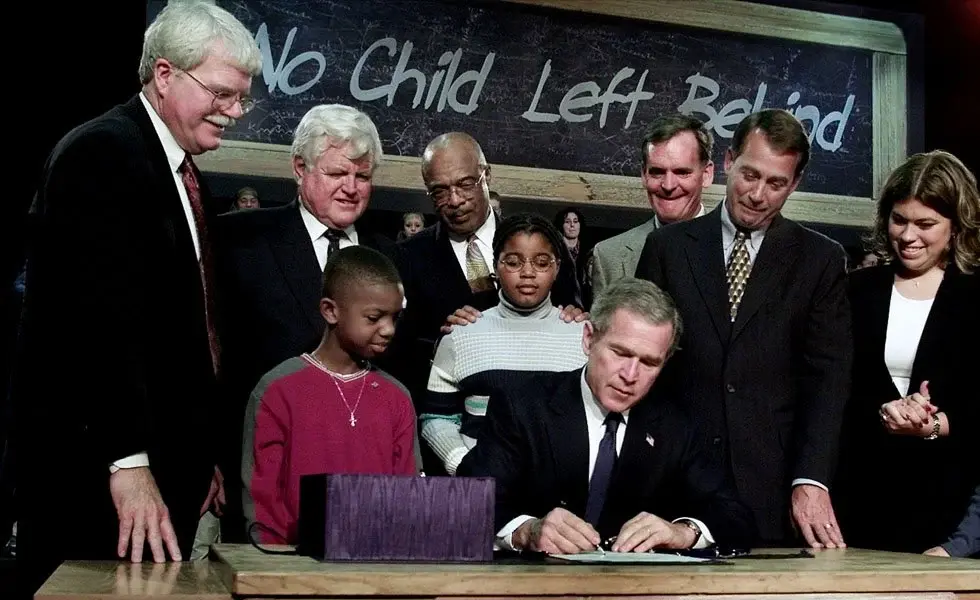Is shutting down the Department of Education really that big of a deal?
- samuelpadams82
- Mar 21, 2025
- 3 min read

On Thursday, President Trump was surrounded by school children, parents, and 6 Republican Governors including Indiana Governor Mike Braun as he signed an Executive Order directing the Department of Education to begin shutting itself down. Despite the noise surrounding this move, it is likely to change very little regarding the future of Education in the United States.


In 1867, Andrew Johnson signed legislation to create the Department of Education, but after widespread concern that the Government was taking too much power from local communities, it lost cabinet status and spent the next hundred years as the U.S. Office of Education and bounced around as a subdivision of different cabinet departments including the Interior and what would become Health and Human Services.

It wasn’t until 1979 when President Carter advocated for the positioning of all Education related funding and programming to its own independent cabinet agency, that the Department of Education as we know it today was formed by Congress. While most of its policy existed before as a part of different cabinet positions, Congress gave the new Department a significant increase in budget which angered many conservatives because of the increase in taxpayer spending. Starting with Reagan’s Presidency, Republican Presidents regularly attempted to remove Cabinet status from the Department, but such action required Congressional action, and divided Governments have regularly prevented that from happening. The only major policies that have

been implemented by the Department of Education came under President George W. Bush’s widely criticized “No Child Left Behind.” Beyond that, much of the federal education laws came from either Congress or in response to Supreme Court rulings that placed protections from discrimination and for constitutional rights.
None of these things will go away with President Trump’s dismantling, and it will really just make education even more of a state by state issue. President Trump has regularly said that student aid isn't going anywhere, and that is one of the primary programs that the Department of Education manages. Outside of that, this is really just going to give more power to State Departments of Education to manage their education policy. To many Americans, this seems to be a scary thought, but I would remind them that this doesn't mean states can just do whatever they want, like bring back segregation or abuse the Constitutional rights of American students. If anything, this will enable the contrary. The Supreme Court, which has made many landmark decisions to overturn state education policies long before there was a U.S. Department of Education, will now have even more responsibility to review the policies of state departments as the federal department would be removed from that process. That being said, the federal department still exists and will continue to exist unless Congress passes legislation absolving the department.
All of that being said, education in America is certainly in crisis. Regardless of who makes the education policy decisions in the United States, changes need to be made to enable communities to better educate their children to become functioning members of society. While some states force students to read their political propaganda, other states are prohibiting students from reading controversial literature and placing more red tape on educators and schools that keeps children from being fully informed. Simply put, depending on the state our children are either uninformed or misinformed. Our education places heavy emphasis on advanced mathematics and classical liberal arts like English, but lets students leave high school without ample understanding of their government, physics, or how to balance a budget. High School graduates can calculate the area of complicated shapes and understand some Shakespearean references, but can't understand basic economics or how to buy a car/home. Reform is both possible and necessary, and is most likely going to happen at the state level. The only way it can happen, is if voters start paying as much attention to state level politics and who they send to their statehouse and Governor's Mansion as they are paying to Capitol Hill and the White House.
These sorts of reforms weren't being done by the Federal Department of Education, and rather it emphasized the existing problems and spent more tax dollars. Now it is up to the states to do better.




Comments